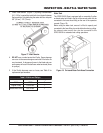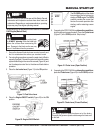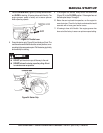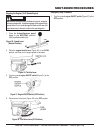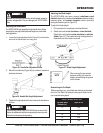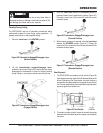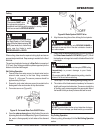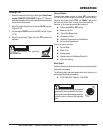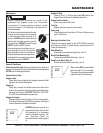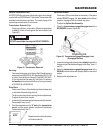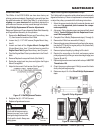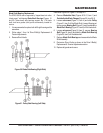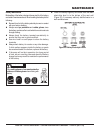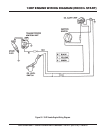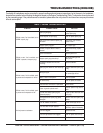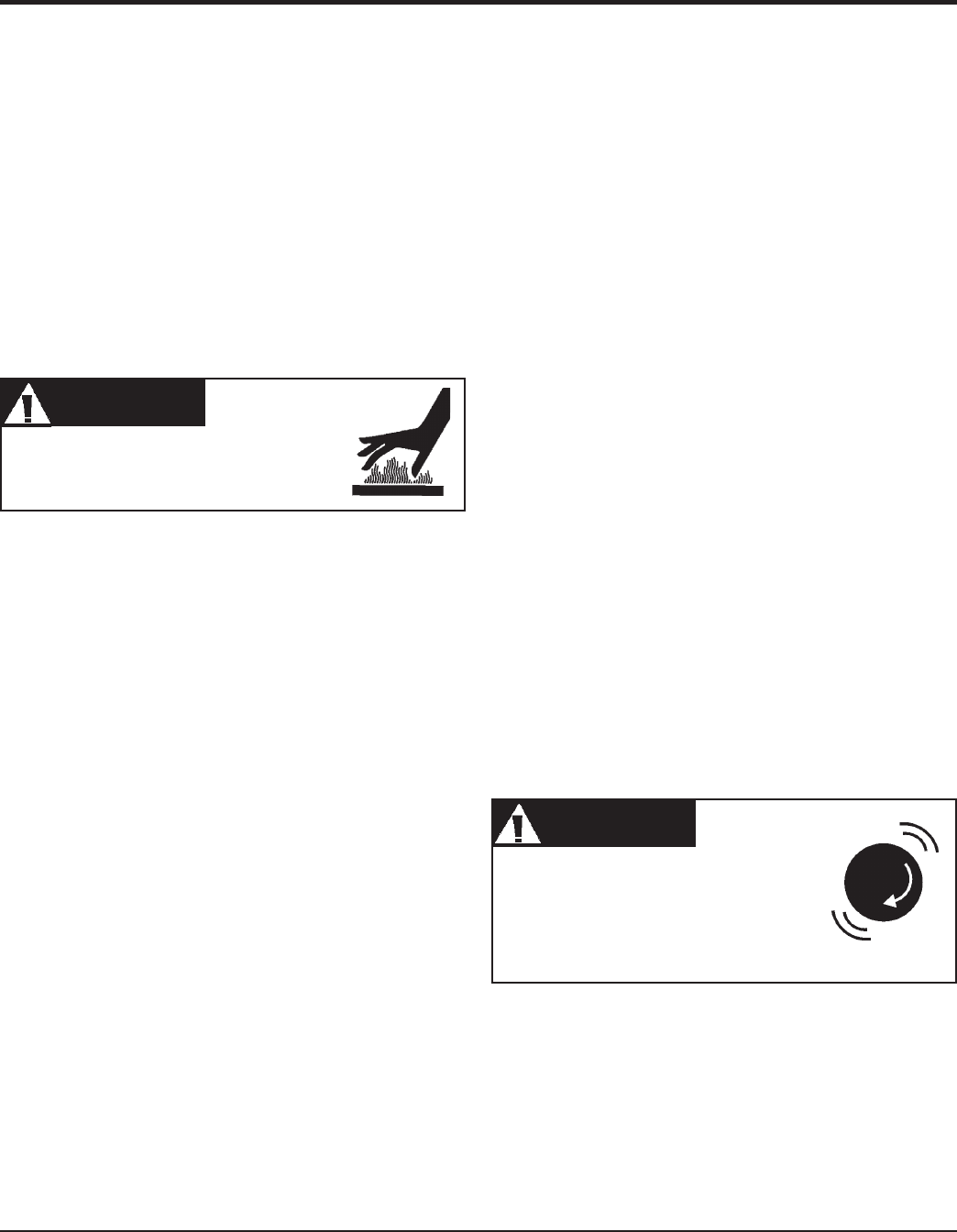
SP2S13H20A SAW — OPERATION AND PARTS MANUAL — REV. #1 (05/17/10) — PAGE 31
Engine components can generate
EXTREME heat.
Diamond Blades
Diamond blade sawing consists of cutting WET (using water to
cool the blade) or DRY (using the circulating air to cool the blade).
Selecting the diamond blade TYPE and GRADE defines how
the blade will perform both in cutting speed and blade life.
Selection of the proper diamond blade consists of:
Determining WET or DRY cutting
Material to be Cut
Type of Saw Being Used
Horsepower of Saw
Hardness Characteristics of the Material
Performance Expectations
Factors for sawing economy:
Type of Blade
Depth of Cut
Sawing Speed
Characteristics of the Material Being Cut
Wet or Dry Sawing
Blade Speed
A diamond blade’s performance is directly connected to specific
peripheral (rim) speeds.
The following shaft rotational speeds have been factory set to
ensure optimum blade performance.
SP2S13H20A 20” Capacity - 2,800 RPM.
Operating saw blades at rotational speeds
greater than those specified by the manu-
facture can cause blade damage, and may
injure the user or others in the operating
area.
OPERATION
Finishing A Cut
1. Raise the blade out of the cut by cranking the
Raise/Lower
handle
COUNTER-CLOCKWISE (Figure 37). Raise the
blade high enough out of the cut to clear the surface and allow
the saw to be maneuvered.
2. Move the engine throttle lever to the idle (SLOW) position
(Figure 30, 33).
3. Set the engine ON/OFF switch to the OFF position (Figure
31, 34).
4. Place the water valve (Figure 44) in the OFF position (as
required).
WARNINGWARNING
WARNINGWARNING
WARNING
WARNINGWARNING
WARNINGWARNING
WARNING



